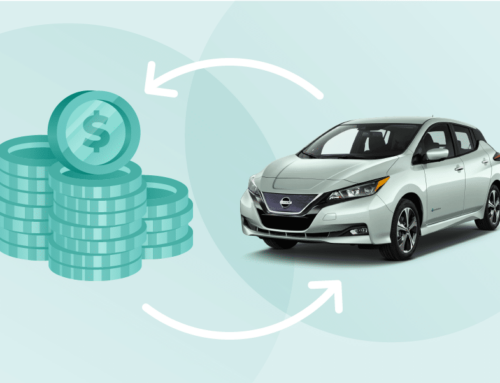Have you ever had a friend ask to borrow money and you wondered if you’d ever get it back? I bet their credit score led them to do this.
Depending on how much cash they wanted to borrow, you probably weighed the risk—even if just subconsciously for a moment—before handing over a five, ten, twenty, fifty or hundred dollar bill. Chances are, the more money that your friend wanted to borrow, the more thoroughly you considered whether or not they’d ever pay you back.
During this thought process, you might have considered how good of a friend they were to you. You might have asked other people who loaned them cash if they ever got it back—and how quickly and after how much hounding and effort on your part. Perhaps you thought of their reputation, trustworthiness, income and current and past financial situation.
This was your first lesson in credit scores.
You were the lender and your friend was the borrower whose creditworthiness was the only thing stopping you from giving them cash (assuming you had it to give).
What does my credit score say about me?
In a recent blog post called A 5-minute lesson in credit score essentials, we introduce everything you need to know about credit scores. But what we didn’t dive deep into, is how your credit score can make or break your current and future plans.
Let’s go back to your friend. The one who needed cash.
Based on your conversations with other people who lent them money, on the fact that they had a good job, and that they were considered responsible, you decided that they would pay you back—and so you lent them the cash. In your eyes (those of the lender), they had great credit.
Credit scores, as we previously learned, are a 3-digit number from 0 to 900 that help major banks and lenders weigh risk just like you did.
Generally speaking, a credit score of:
- 0 – 574: Bad—you don’t give your friend the cash
- 575 – 689: Below average to average—you might give your friend the cash but at a price
- 690 – 740: Good—you give your friend the cash and set reasonable ground rules
- 741 – 900: Excellent—you shower them in cash and know that they’re good for it
Why and how you’ll be judged by your credit score
Let’s fast-forward to now, or soon, when you and your friends all need to borrow cash for a car, get approved to rent an apartment, apply for a student loan, borrow money for a mortgage or a downpayment on a home, get insurance for large assets, apply for a business loan, move toward your financial goals, etc. What does your 3-digit number credit score say about you and your creditworthiness?
How big of a risk do banks and other lenders have to take on you? How much extra will you have to pay because your credit score is non-existent, bad, poor or average?
Thankfully, just like how people and their circumstances can change, so too can a credit score. Your credit score fluctuates with every loan you take out, credit card you open or pay off, and bill you settle on time.
You may have average credit now, but there are quick and easy steps to take to get your credit score up to a great or even excellent rating. For example, not all bill payments and loans are created equally. By paying off the ones that seriously affect your credit score as quick as possible, you may see a positive boost to your rating.
Learn more about Marble Financial Score-Up that helps you improve your credit fast, by analyzing which payments to make and steps to take along the way to financial health.






